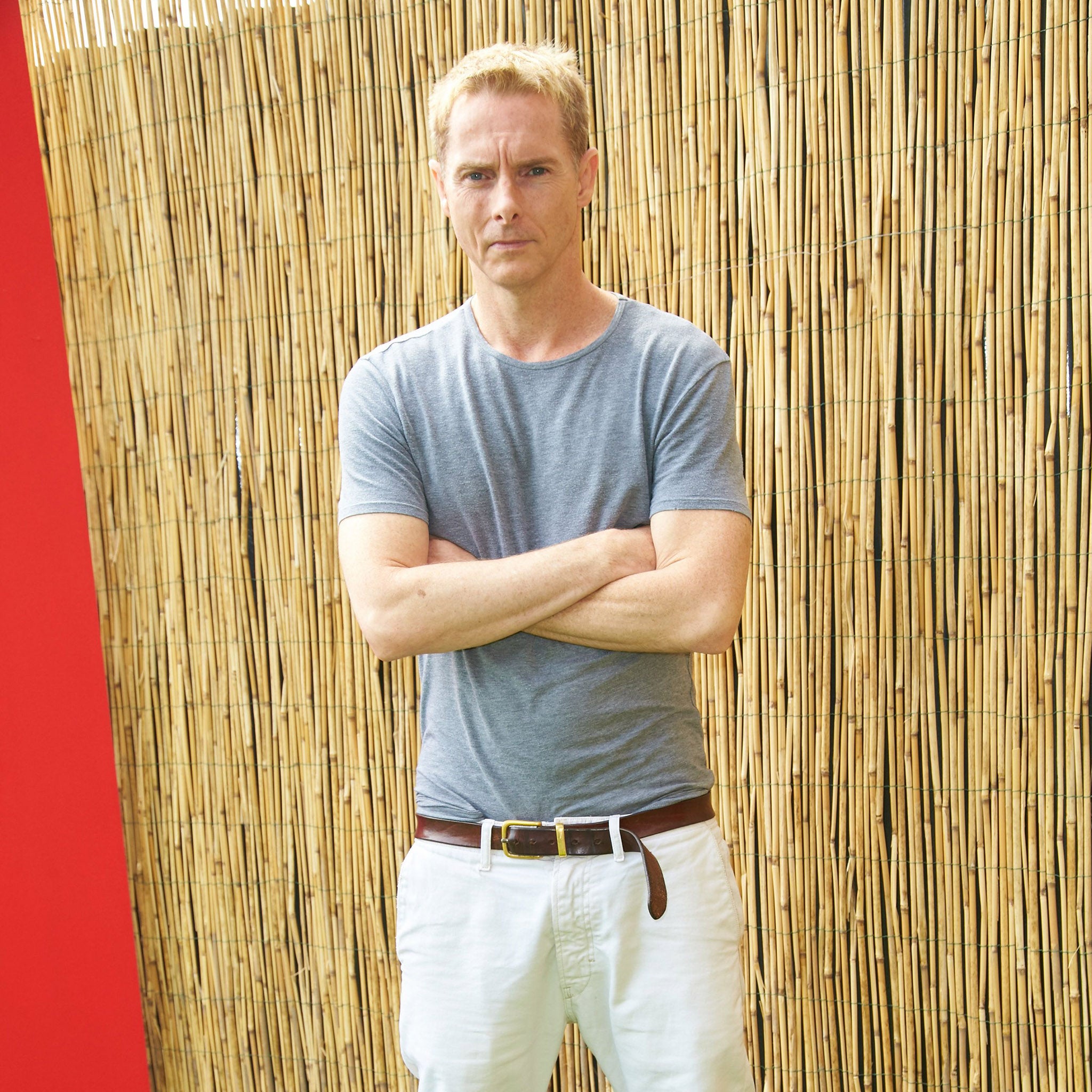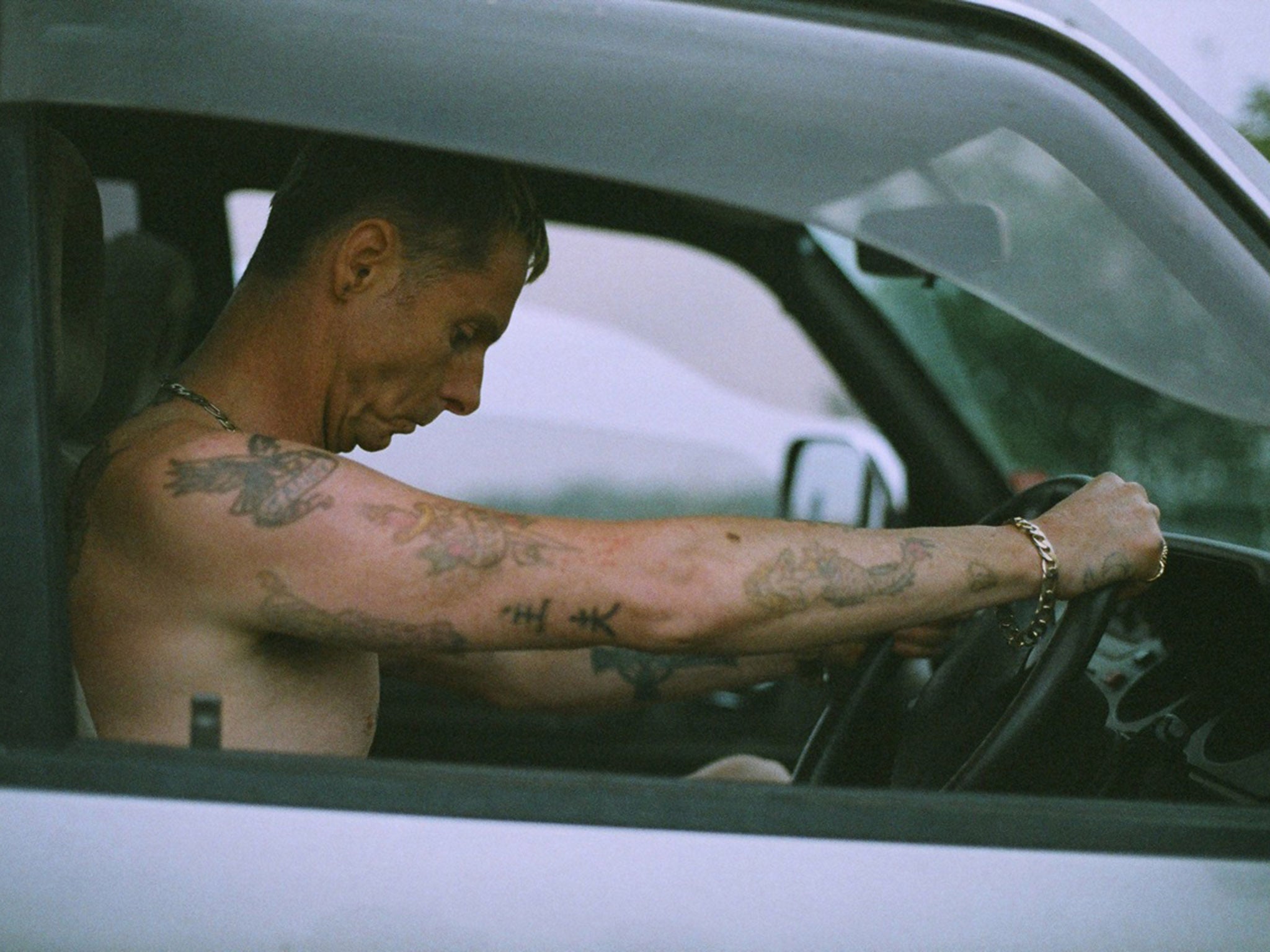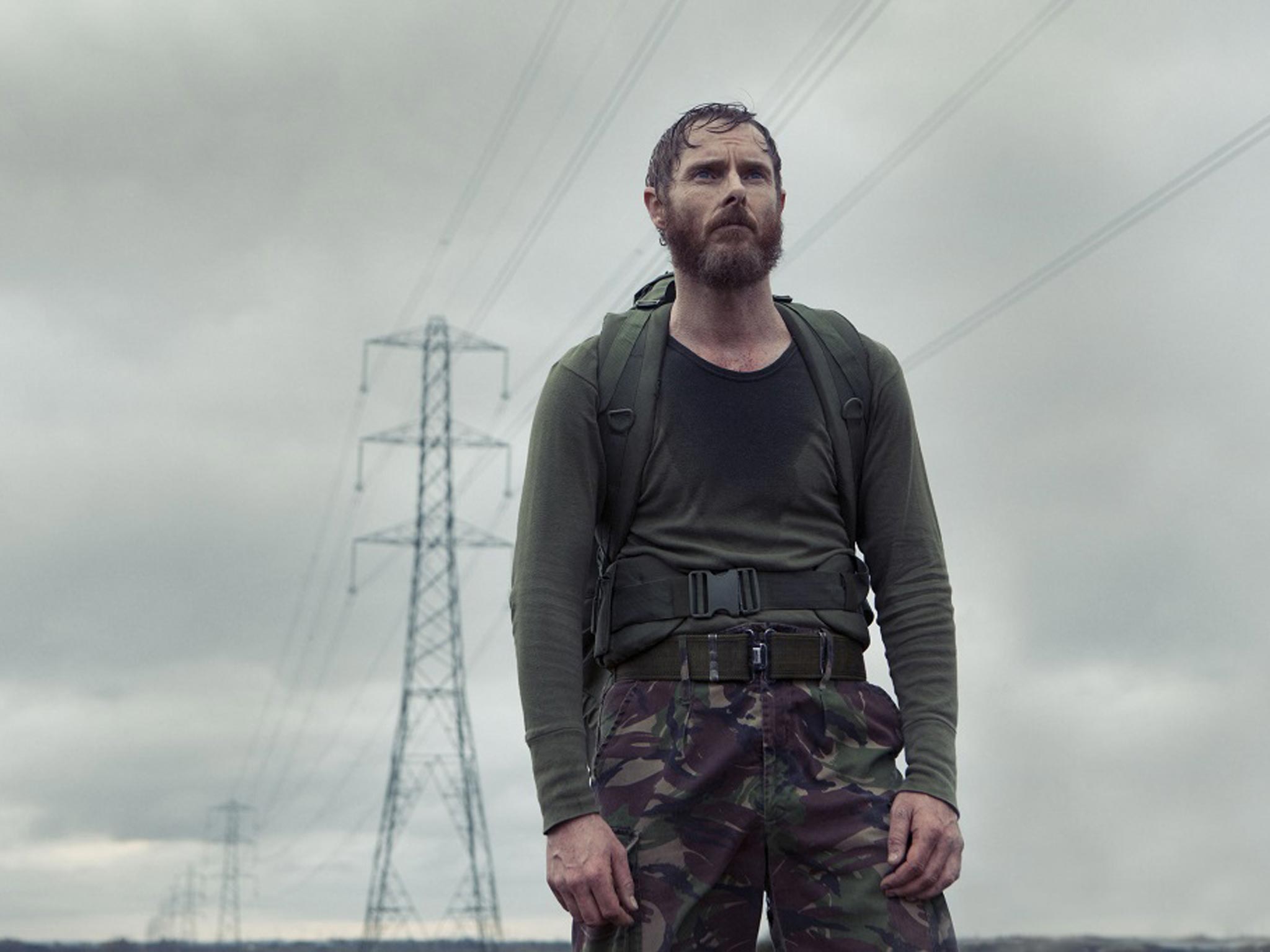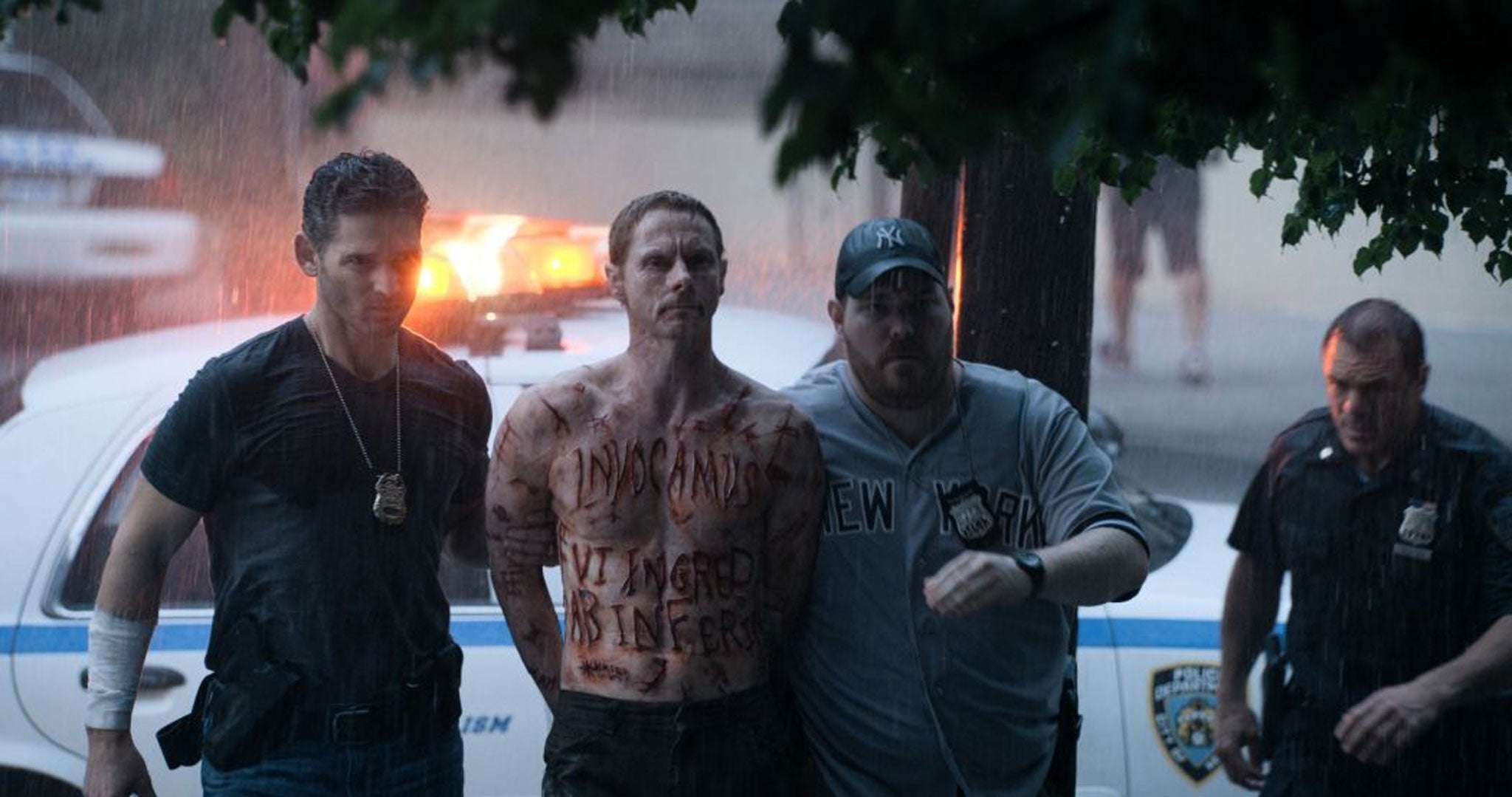Sean Harris: A rare interview with British acting's secret weapon
The Bafta-winner talks Hollywood, being branded a psycho, and how Barbra Streisand is his true inspiration

Your support helps us to tell the story
From reproductive rights to climate change to Big Tech, The Independent is on the ground when the story is developing. Whether it's investigating the financials of Elon Musk's pro-Trump PAC or producing our latest documentary, 'The A Word', which shines a light on the American women fighting for reproductive rights, we know how important it is to parse out the facts from the messaging.
At such a critical moment in US history, we need reporters on the ground. Your donation allows us to keep sending journalists to speak to both sides of the story.
The Independent is trusted by Americans across the entire political spectrum. And unlike many other quality news outlets, we choose not to lock Americans out of our reporting and analysis with paywalls. We believe quality journalism should be available to everyone, paid for by those who can afford it.
Your support makes all the difference."This is a secret; I’m letting this one out,” whispers Sean Harris, leaning forward in his armchair.
“My [career] references aren’t Taxi Driver and De Niro. I used to like Barbra Streisand films. It was Funny Girl that really turned me on, in a sense, to acting.” Is he joking? He shakes his head. “I remember it specifically being a rainy Saturday afternoon. I couldn’t play football, so I stayed in and I watched Funny Girl.”
It’s not the sort of admission you expect from Harris, the character actor who, ever since his breakthrough role as Joy Division’s suicidal front man Ian Curtis in 24 Hour Party People, has burnt white-hot in almost everything he touches. For, though he may not claim Taxi Driver as an inspiration, there’s a consistently unhinged, Travis Bickle-like quality to his work. Think of the small-town killer in Southcliffe, a role that won him this year’s Best Actor TV Bafta. Or his corrupt Yorkshire policeman in the Red Riding trilogy. Or his assassin, Micheletto Corella, in The Borgias. One could go on.
Today, he’s dressed in a grey T-shirt and white jeans, with his hair dyed blond. It’s a disarmingly casual get-up for someone known as a hyper-intense presence who stays in character on set. “Everyone says I’m intense or I’m mad or I play bad guys,” he sighs. “I don’t see any of that. I think [my characters] are all very real people. They’re also people I’ve somehow bumped into. I always try to come up with some sort of truth.”

As his small brown eyes flick around warily, I’m reminded that this most publicity-shy of actors rarely does interviews. “I can’t talk about my parents – sorry,” he says at one point, and his relationship history is off-limits, too. Yet his talent means it’s going to be hard for him to stay under the radar: rumours abound that he’s just been cast as the villain in Mission: Impossible 5, a prospect that, if true, will see him blow Tom Cruise off the screen.
This autumn, meanwhile, the 48-year-old is all over the big screen. Already, he has pitched up as a corrupt British Army captain in ’71, starring Jack O’Connell as a rookie British soldier lost on the streets of Belfast. “Although it’s about The Troubles, it’s not really a political film,” says Harris. “There’s politics there but it’s a chase movie.” It was a disorientating shoot, he adds, with all the scenes filmed at night. “You didn’t know if you were coming or going.”
While his screen-time is minimal compared to O’Connell’s, Harris prepared as if he was the lead, building the character from the ground up and giving him a backstory and even a first name, Sandy, not in the script. Harris previously worked with O’Connell on the urban thriller Harry Brown, stealing the show as a crackhead dealer. “I don’t feel like I’ve ever met [Sean],” O’Connell told me recently. “I’ve met the characters he’s played. I’ve received abuse from the characters he’s played.”

Next week, Harris can be seen in Serena, Susanne Bier’s long-delayed period melodrama starring Hollywood’s hottest screen couple of the moment, Jennifer Lawrence and Bradley Cooper, as a timber tycoon and his unhappy wife . “I think I made that 17 years ago!” jokes Harris, who plays Campbell, a book-keeper who is the “good, solid, backbone” to Cooper. The film is a misfire, which may explain the delay, but for Harris, it was a crucial career progression. “I went in initially for the bad guy, but she [Bier] didn’t see that in me. She saw something different.”
While Serena also gives Harris his first American role (“I was interested to see if I could pull that off”), it’s his third new movie, The Goob, that offers more insight into Harris’s own personality. Set close to where he grew up, in Lowestoft, Suffolk, the poetic social-realist drama sees him play Womack, a womanising stock-car racer with “primal” appetites who is the intimidating new partner of the film’s 16-year-old eponymous hero Goob. Harris has known the director, Guy Myhill, for 15 years, and they started out making shorts together. “It’s important for me to do films about where I come from and Guy’s the only person who is making those films,” he says.
Acclaimed at the London Film Festival last week, and set to be released in the spring, The Goob’s coming-of-age tale reminded Harris, an only child, of his own youth in Suffolk. “When I grew up, the only way a lad like me would maybe escape was playing football. Not being an actor.” He got close to trials, until he broke his leg when he was 15, and had to give up on his dreams. “It knocked me for six for a couple of years. I didn’t really have anything else in the bag.”

Academia was never his thing. “School was not a place I enjoyed,” he says. But, partly thanks to the inspiration of Barbra Streisand, he took off to London to study acting at the Method-based Drama Centre, before starting out in theatre. “I wasn’t like ‘I want to be famous’. I just wanted to be an actor. I wasn’t chasing anything. I was never stressed or worried. I never had any fear of rejection or not making it, anything like that.”
After steadily building a reputation in British TV and film, Harris’s first Hollywood role was in Ridley Scott’s Alien prequel Prometheus, although his character, Fifield, was little more than monster fodder. “I don’t know if I’m interested in being in the background of those movies. You’re fighting for your moment on screen. And if you want to be in a film like that, you want to be playing Michael [Fassbender]’s part. And I’m not going to be playing Michael’s part,” he says.
Assuming that those Mission: Impossible 5 rumours come good, he might have to eat his words. In the meantime, he happens to have made two further films with Fassbender: Trespass Against Us, an outlaw story set in a traveller community, and a new version of Macbeth, in which he’s playing the “solid, good, honest, truthful” Macduff.

Directors are finally seeing his range, allowing him to “mix things up”, he says. Did he ever get annoyed at being branded as a rent-a-psycho? He answers obliquely. “I care about my work and I think it matters. I’m in an industry that doesn’t really cater for actors any more.”
You can sense his frustration. If he’s a natural successor to Tim Roth or Gary Oldman, he’s almost alone amid all the pretty-boy next-big-things. “You’re often thinking, ‘Why am I doing this?’ ...
“But you don’t have a choice – you have to do it.”
‘’71’ is on general release. ‘Serena’ opens this Friday
Join our commenting forum
Join thought-provoking conversations, follow other Independent readers and see their replies
Comments